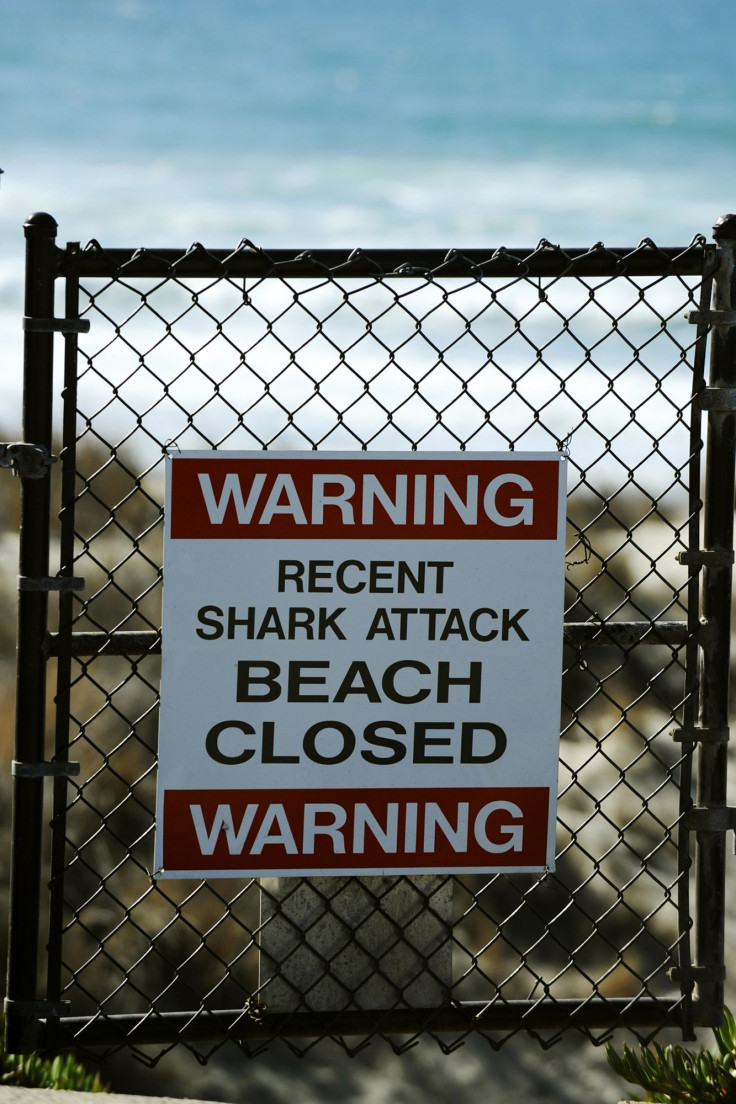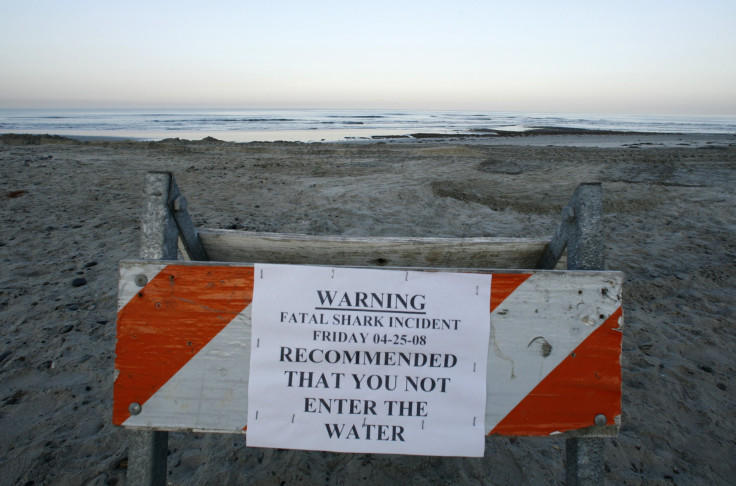Shark Attacks Increasing On California Coast Beaches In 2017

A 35-year-old swimmer was attacked in shallow water on a beach north of San Diego last week, leading officials to close beaches and urge caution to swimmers and surfers in the area. Southern California has seen an increase in shark sightings as of late, including many young great whites.
“I attribute a lot of that to better conservation,” marine biologist Dr. Chris Lowe told CBS News. “We protected white sharks 20 years ago in California, their food source has come back, and in many ways, our coastal oceans are getting healthier.”
Despite the positives of better conservation for sharks, the increase has raised concern among those in the area. The bitten swimmer, Leanne Ericson, was attacked in knee-deep water and likely only survived because of the fast action of those on the beach, her surgeon said.
“That was crucial,” Dr. Gail Tominaga told CBS News. “They were able to put a big dressing on and a partial tourniquet on to help the bleeding, you know, decrease the bleeding.”
Read: Kentucky Teen Escapes Attack By Punching Shark
It’s likely the sharks are not intentionally going after people, marine biologist Dave Bader of the Aquarium of the Pacific said.
“We know what great white sharks like to eat and especially as juveniles, we know they like to eat small fish,” said Bader. “Nothing on you looks like a small fish.”
Unintentional or not, shark attacks have been on the rise in California in recent years. A graph from sharkattackdata.com, a database of incidents, showed attacks had been steadily rising since around 2004. Most occurred in San Diego and Humboldt counties.
California isn’t the only place that has seen a rise in sightings. A study of great whites in Cape Cod, Massachusetts in March revealed that the number of sharks had increased in recent years. Conducted by the Massachusetts Division of Marine Fisheries, the report showed 80 sharks had been counted in 2014, while 147 were located in 2016.
The proliferation of sharks has led to devastating consequences in some regions. A 17-year-old was fatally attacked by a shark in Western Australia in April, the third deadly attack in the area in a single year. Those fatalities led Australian officials to put the controversial practice of culling, or capturing and killing the animals, back on the table.
“In light of the recent shark attack the Commonwealth would welcome any proposal to put human life first,” federal environmental minister Josh Frydenberg announced after the incident. “This could include the newest drum line technology, shark exclusion nets, culling or other measures which Western Australia sees fit.”
The mass culling of sharks has the potential to destroy an ecosystem, as killing sharks in large numbers could throw an entire food web out of balance.
“The top predators in any ecosystem are very important because they can decide on whether other creatures become numerous or not,” Robert Day, marine biologist in the School of Biosciences at the University of Melbourne in Australia, told Phys.org Monday. “If there is a lack of sharks, then fish and other ocean creatures that would otherwise be consumed by sharks will become too numerous and eat too many smaller creatures and so on, meaning that the whole ecosystem changes massively.”

© Copyright IBTimes 2024. All rights reserved.





















